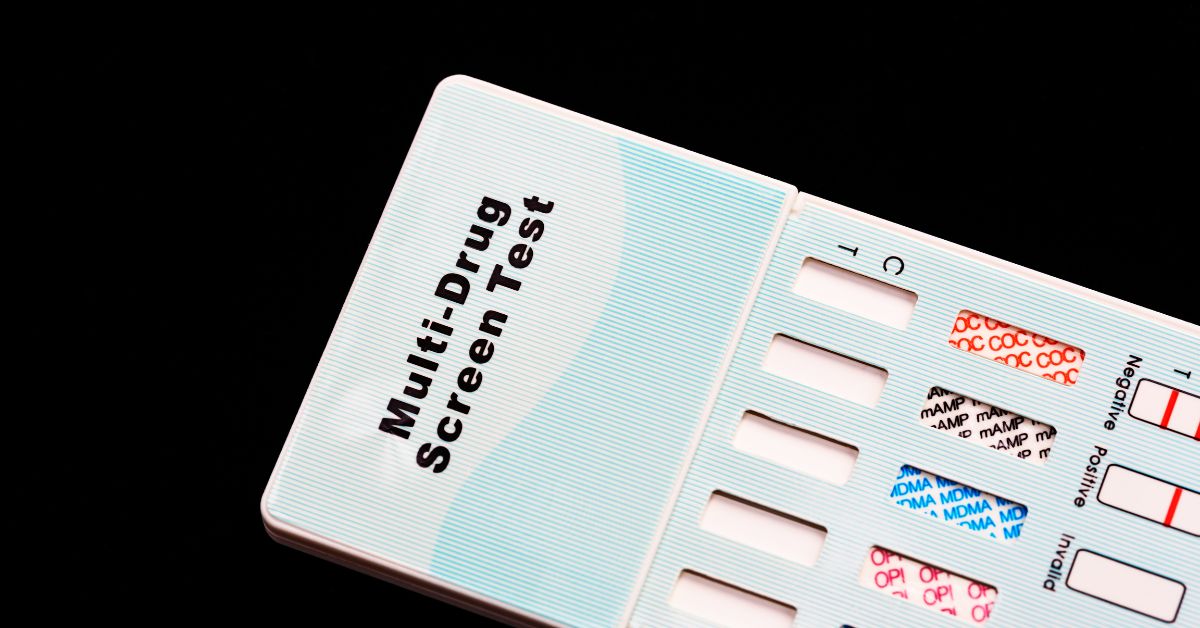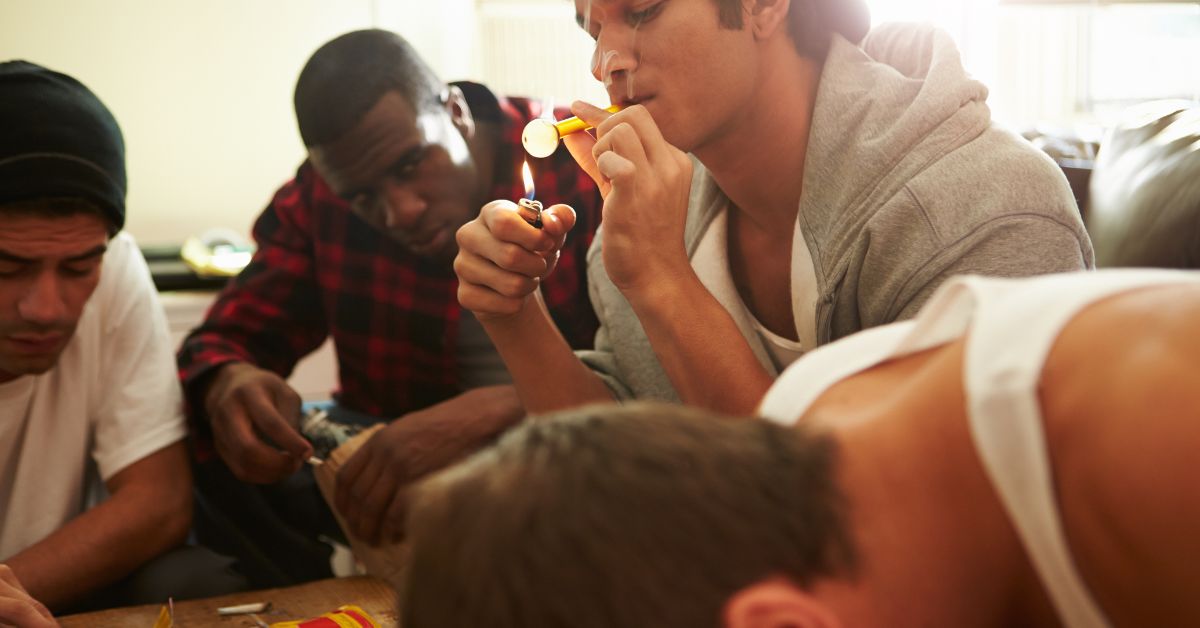Discovering that your child has tested positive for drugs can hit your heart with a mix of emotions. Fear, confusion, and perhaps an overwhelming sense of helplessness. It’s okay to don’t know how to react.
In these early steps through such rugged terrain, gathering your strength and compassion is essential. This is not just about confronting the truth; it’s about understanding. It may be hard to navigate the complexities of abuse disorder with love and resolve.
So take a deep breath, dear reader. Let us explore how we can stand steadfast beside our children during one of their most challenging chapters. Fill your heart with empathy and let your mind seek guidance for the future.
Identifying Signs of Addiction in Your Child
All parents share a common fear: addiction or even drug dealing might one day touch their child. Understand what addiction is, particularly within the context of adolescent drug use. This is the first step toward recognizing and confronting this concern. It can be seen as a complex brain disorder characterized by compulsive substance use despite harmful consequences. It’s not just about the frequent use of drugs; it’s about how drugs change their brain and behavior.
The signs are often subtle but telling:
- Mood or attitude changes in your teen.
- Sudden changes in friends or hangouts.
- Neglect of personal grooming.
- Changes in eating or sleeping patterns.
- Secretive behavior.
- Unexpected requests for money without explanation.
- Grades might slip.
- Interests, once vibrant, fade into disinterest.
When Should You Drug Test Your Child?

Deciding when to drug test your son or daughter is a delicate matter. It requires careful consideration. You don’t want to damage the relationship after all. Here’s a step-by-step guide to help you navigate this challenging decision:
- Observe Behaviors: Look for signs of abuse.
- Open Communication: Have an honest conversation with your teenager. Explain your concerns regarding drugs before deciding on testing.
- Evaluate Evidence: Consider the severity and frequency of suspected use of drugs.
- Understand Testing Methods: Research how tests work and what drugs they can detect. Make sure you’re informed about the process and potential outcomes.
- Consider Relationship Impact: Reflect on how drug testing might affect the trust between you and your child. Trust is crucial. Ensure they understand that any measures taken are from a place of care and concern.
If, after careful deliberation, you decide to proceed with a test for your teen and end up facing a positive result, remember:
- Seek Professional Guidance: Confirm results with healthcare professionals. They can provide context for the positive.
- Plan Next Steps Together: Use this to strengthen communication rather than sever it. Discuss treatment options openly if necessary.
Decide if you should drug test your teenager through family discussions. Observe and prioritize safety and trust in this decision.
UPDATED: Discover the 3 life-changing things about addiction I wish I knew years ago
Your Child Tested Positive: What To Do Now?
Discovering this can be a challenging and concerning moment for any parent. It’s crucial to approach this situation with care and understanding. In the following steps, I will guide you through a series of actions to take and considerations to make, helping you navigate this complex and sensitive issue with the well-being of your child in mind.
Understanding Your Child’s Drug Test Results
When the drug screening shows a positive result, it’s crucial to comprehend what this implies for various tests. These tests include urine, saliva, or hair follicle screenings. Know that false positives can occur, especially if you’re using a home drug testing kit. Each type has its window of accuracy and drugs it can detect.
Before any conclusions are drawn:
- Have the results confirmed through additional testing by healthcare professionals
- Understand which drugs were detected. Consider any legitimate reasons (such as prescribed medications) that could explain the result.
Verifying the Results
When your kid’s drug test comes back with a positive result, it’s essential to ensure the accuracy of these findings before taking further steps.
If the test was conducted through the school, confirm with the school nurse. The nurse can provide clarity on how and when the test was administered. Also, they can let you know if it was urine, blood, or another type of test. This way you can check the accuracy of the results. Nurses can offer insights into interpreting results. They may also have additional context about your teen’s behavior or health that could be relevant.
Understanding the Specifics of the Test Results
Gain a thorough understanding of what drugs were detected and in what quantities. Familiarize yourself with false positives and factors that might influence results, such as certain medications or foods, so you can discuss these details knowledgeably if questions arise.
WATCH: Free, confidential workshop that explains how to "Love Another Way"
Communicating with Your Teen
Opening lines of communication following a positive drug screening is critical for both support and understanding.
Start this delicate conversation from a place of love rather than accusation. Express concern rather than anger, making it clear that your priority is their well-being. This compassionate approach lays the groundwork for an honest dialogue about their drug use without putting them on immediate defense.
Discussing the Impacts of Drug Use
Talk openly about both short-term effects and long-term consequences of using drugs as part of this conversation. Emphasize how substance abuse can impede physical health and life opportunities. Educational and social aspects can be affected in their future careers.
Addressing Common Excuses and Denials
It’s not uncommon for teens to respond to a positive test result by making excuses or outright denying substance use.
Listen carefully to your teen’s rationale. However, be prepared to counter excuses scientifically or through observed behaviors. It’s important to acknowledge their feelings while steering them toward accepting reality. Present facts over fiction regarding their situation.
The Importance of Firm but Supportive Stance
Maintaining a balance between firmness in addressing denials while offering unwavering support is key. Clearly articulate non-negotiable boundaries concerning drug use while assuring them that they’re not alone in facing whatever challenges lay ahead.
Consider Professional Help

Recognize when love and home interventions fall short of drug dependence’s stronghold. It is time to seek professional help when you see persistent abuse despite conversations and consequences. Available resources include:
- Local substance abuse hotlines
- Recommendations from pediatricians or family doctors.
- Mental health professionals specializing in teen abuse of drugs.
Remember to navigate these waters with calmness. Your initial response sets the tone for subsequent actions.
Exploring Treatment Options After a Positive Drug Test
Your path will fork here: therapy sessions? Rehabilitation programs? Perhaps medication-assisted treatment, if deemed appropriate by medical experts? As parents supporting this journey towards recovery:
- Research all avenues extensively.
- Consult with addiction specialists.
- Be involved at every stage.
SEE: Find out why your boundaries keep getting crossed (and how to reinforce them)
Outpatient vs. Inpatient Care
Outpatient care allows continued life routines while receiving treatment. On the other hand, residential programs provide immersive environments focusing solely on recovery. Considerations include:
- Severity of addiction
- Support systems at home
Support Networks as Part of Recovery
Building a robust support network cannot be overstated. It becomes part of the therapeutic landscape during treatment phases and beyond into everyday life. Resources span from local support groups to online communities. These fosters connection among families facing similar struggles. Struggling with drug abuse is not easy. That’s why I recommend the whole family to be involved in substance abuse treatment.
Common Drugs of Abuse in Teens

As teens go through their formative years, the pressure to use drugs can be significant. This can lead many kids down a path from experimental use to teen drug abuse.
- Marijuana is one of the most common drugs that teens encounter and experiment with. Availability and growing social acceptance are some of the reasons for the increased marijuana use in teens.
- Prescription medications also pose a substantial risk. These are sometimes wrongfully viewed as safer alternatives due to their medical origins but can quickly lead to dependency or abuse.
- Cocaine is another dangerous drug that some teens may come into contact with. Its potent and addictive nature makes it particularly hazardous and can trigger severe use disorders.
Being aware of these drugs and their prevalence among adolescents is critical for parents striving to protect their children from the risks associated with drug use and addiction.
Navigating Conversations About Drug Use
Approaching such conversations requires finesse—enter these dialogues prepared yet adaptable. Don’t forget you’re parenting a teen, not an adult. Tips for talking to your child include:
- Asking open-ended questions that encourage honest discourse
- Listening intently without interjecting prematurely
Try to understand why they’ve turned toward drugs opens doors. Create empathy-driven solutions rather than punitive reactions alone.
WATCH: Free, confidential workshop that explains how to "Love Another Way"
Creating a Prevention Plan Post-Treatment
As initial treatment concludes—the vigilance doesn’t wane. Here, you take preventative measures, ensuring sustenance against relapse temptations. Steps involve establishing routine check-ins and monitoring environments, both physical and digital. This may sound overwhelming, but preserving the relationship between parent and child is worth it. Here are some preventive measures you can take as a parent:
Support for Parents Post-Treatment
As a parent, facing the aftermath of your teen’s treatment can be an isolating experience. It’s crucial to remember that you need support too.
Addiction programs often offer resources for family members. They provide a network of understanding and guidance. These programs offer counseling, support groups, and educational workshops to help you navigate your emotions.
Addressing Persistent Worries About Relapse
It’s natural for parents to find themselves consumed by worry. After all, their teen has battled with drug abuse; the fear of relapse is ever-present. It’s hard to stop worrying about a drug addict son who is on his path toward recovery. Creating structured prevention plans can help ease these anxieties. Some tips are:
- Engaging in regular communication with counselors
- Setting clear boundaries and expectations at home
- Maintaining an open dialogue with your child
These strategies reinforce stability and trust. This is the foundation from which you and your son can grow more robust in the face of past struggles.
Establishing Rules and Boundaries Related to Drugs
Clear rules post-recovery become guardrails guiding paths away from potential risks. Enforce consistency with compassion. Enforcing boundaries means standing firm yet flexible enough. This way, trust isn’t eroded but fortified through mutual understanding of agreements.
Building a Path Forward After Your Child Tests Positive for Drugs

Traversing this landscape shaped by a kid’s positive result for drugs is indeed challenging. I know that a positive result can be crushing. However, don’t forget you can find proper information. Combine this with strong support networks and tailored professional treatment options at hand.
We reinforce our theme as we conclude our exploration across each pivotal section discussed here. This journey calls not just for vigilance but also hopeful engagement. Parents’ determination, health professionals’ expertise, and supportive community networks. All this aims towards one horizon: Recovery. Actionable steps today imbued deeply with empathetic understanding throughout tomorrow are key.
Frequently Asked Questions About What To Do When Your Child Tested Positive for Drugs
At what age should you start talking to your kids about drugs?
Begin discussing drugs with children early, around preschool age. Use simple concepts of safe and unsafe substances. Discussions should evolve as they grow. It should become more detailed and relevant to their experiences.
What is a drug kid-friendly definition?
A drug is something people take to change how they feel. Some are medicine from doctors, while others are bad for you. Explain that medicines must be used as directed and illegal drugs can be harmful.
NEW: How to make the shift from "Mom Code" to prioritizing your own well-being
How can drugs affect a child’s development?
Drugs can hurt a child’s brain growth, making learning tough and causing mood problems. This impact on their development. It also can affect their social life and future choices.
